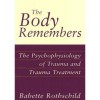Critical & Alternative Perspectives
On The Web
The Campaign to Abolish the Schizophrenia Label – www.caslcampaign.co
CASL is calling for the label of schizophrenia to be abolished on the grounds that it is outdated, unscientific, stigmatising and presents a barrier to effective and appropriate support to individuals diagnosed with the label.
Coming off Psychiatric Medication – www.comingoff.com
Information about coming off psychiatric medication.
The Critical Psychiatry Network – www.critpsynet.freeuk.com
The Critical Psychiatry Network provides a network to develop a critique of the contemporary psychiatric system.
The Freedom Centre – www.freedom-center.org
An American-based support and activism community for anyone experiencing mental health difficulties. Includes event lists, links and advice around medication.
The Fireweed Collective – http://theicarusproject.net
Support network started in the U.S. for people ‘navigating the space between brilliance and madness’
The International Critical Psychiatry Network – www.criticalpsychiatry.net
Created by medical doctors as a forum (primarily for medical doctors) to discuss, critique, and publicise opinions, practices, literature, and events that support critical thinking and alternative approaches to psychiatry.
International Network Toward Alternatives and Recovery – http://intar.org/
Gathers prominent survivors, professionals, family members, and advocates from around the world to work together for new clinical and social practices towards emotional distress and what is often labeled as psychosis.
Peter Lehmann Publishing – www.peter-lehmann-publishing.com
Publishes excellent books available in English on alternative approaches to mental health problems.
Mad Pride – www.ctono.freeserve.co.uk
The all new website of this energetic mental health surivivors organisation. Includes details of future gigs & events, the origins of Mad Pride and their ‘Stop The Suicides’ campaign
MindFreedom International – www.mindfreedom.org
MindFreedom International unites 100 grassroots groups and thousands of members to win campaigns for human rights of people diagnosed with psychiatric disabilities.
National Service User Network – www.nsun.org.uk
Aims to create a network which will engage and support the wide diversity of mental health service users and survivors across England in order to strengthen the user voice.
PCCS Books – www.pccs-books.co.uk
Publisher of counselling and psychotherapy books and journals. Committed to reflexive, radical and critical contemporary psychology theory and practice
Soteria Network – www.soterianetwork.org.uk
Soteria is a network of people in the UK promoting the development of drug-free and minimum medication therapeutic environments for people experiencing ‘psychosis’ or extreme states.
The Spiritual Crisis Network – www.spiritualcrisisnetwork.org.uk
A UK based network set up to improve access to approaches that view psychosis as a spiritual crisis or spiritual emergence ideas.
World Network of Users and Survivors of Psychiatry – http://wnusp.rafus.dk/
WNUSP is an international organization of users and survivors of psychiatry.
In Print
Asylum Magazine – www.asylumonline.net/subscribe.htm
Asylum magazine is a forum for free debate, open to anyone with an interest in psychiatry or mental health. We especially welcome contributions from service users or ex-users (or survivors), carers, and frontline psychiatric or mental health workers (anonymously, if you wish). The magazine is not-for-profit and run by a collective of unpaid volunteers.
Appignanesi, L. (2008) Mad, Bad and Sad: A History of Women and the Mind Doctors from 1800 to the Present. Virago Press.
Barker, P. Campbell, P. Davidson, B. (1999). From the Ashes of Experience. Whurr Publishers.
Bentall, R. (ed.) (1990). Reconstructing Schizophrenia. Hove: Routledge.
Bentall, R. (2003). Madness Explained: Psychosis and Human Nature. London: Penguin.
Bentall, R. (2009). Doctoring The Mind: Why Psychiatric Treatments Fail. London: Penguin.
Boyle, M. (1990). Schizophrenia: A Scientific Delusion? London, Routledge.
Bracken, P. and Thomas, P. (2005). Postpsychiatry: Mental Health in a Postmodern World. Oxford: Open University Press.
Breggin, P. (1991) Toxic Psychiatry: Why Therapy, Empathy and Love Must Replace the Drugs, Electroshock and Biochemical Theories of the New Psychiatry. Flamingo; (Reissue) edition (2010)
Breggin, P. (2008). Brain Disabling Treatments in Psychiatry. New York: Springer.
Chesler, P. (1972). Women and Madness. New York: Avon.
Cohen, C. and Timimi, S. (2008). Liberatory Psychiatry: Philosophy, Politics and Mental Health. Cambridge University Press.
Coleman, R. (2004). Recovery: An Alien Concept (2nd Edition). Fife: P&P Press Ltd.
Frame, J. (2008). An Angel At My Table. Sydney: Vintage.
Foucault, M. (1965). Madness and Civilization. New York: Vintage.
Greenberg, J. (1964). I Never Promised You A Rose Garden. New York: Holt, Rinehart & Winston.
Grof, S. (1985). Beyond the Brain: Birth, Death and Transcendence in Psychotherapy. State University of New York Press.
Grof, S. (1988). The Adventure of Self-Discovery: Dimensions of Consciousness and New Perspectives in Psychotherapy and Inner Exploration. State University of New York Press.
Hammersley, P., Langshaw, B., Bullimore, P., Dillon, J., Romme, M. and Escher, S. (2008). Schizophrenia at the tipping point. Mental Health Practice, 12(1), 14 – 19.
Hornstein, G.A. To Redeem One Person Is To Redeem The World: The Life of Frieda Fromm-Reichman. Free Press.
Hornstein, G.A. (2009). Agnes’s Jacket: A Psychologist’s Search for the Meanings of Madness. Rodale Press.
Johnson, B. (2005). Emotional Health. Trust Consent Publishing.
Johnson, B. (2005). Unsafe at Any Dose. Trust Consent Publishing.
Johnstone, L. (2000). Users and Abusers of Psychiatry. Hove: Routledge.
Joseph, J. (2003). The Gene Illusion. Ross-on-Wye: PCCS Books.
Joseph, J. (2006). The Missing Gene: Psychiatry, Heredity, And the Fruitless Search for Genes. New York: Algora.
Laing, R. (1959). The Divided Self. London: Tavistock.
Laing, R. and Esterson, A. (1964). Sanity, Madness and the Family. London: Penguin.
Laing, R. (1967). The Politics of Experience. London: Penguin.
Millett, K. (1990). The Loony-bin Trip. New York: Simon & Schuster.
Moncrieff, J. (2009). The Myth of the Chemical Cure: A Critique of Psychiatric Drug Treatment. Palgrave Macmillan.
Mosher, L. et al. (2004) Soteria: Through Madness to Deliverance. Philadelphia: Xlibris.
Newnes, C. et al. (eds) (1999). This is Madness. Ross-on-Wye: PCCS Books.
Newnes, C. et al. (eds) (2001). This is Madness Too. Ross-on-Wye: PCCS Books.
Nightsky, O. (1999). The Bridge Between Two Worlds. A Shaman’s View of Schizophrenia and Acute Sensitivity. Keepwell (NZ) Ltd.
Rapley, M. Moncrieff, J. Dillon, J. (2011). Demedicalising Misery: Psychiatry, Psychology and the Human Condition. Palgrave Macmillan.
Read, J. and Reynolds, J. (1996). Speaking Our Minds: An Anthology. Palgrave Macmillan.
Read, J. (2009). Psychiatric drugs: Key Issues and Service User Perspectives. Palgrave Macmillan.
Read, J. Bentall, R. and Mosher, L. (2004). Models of Madness: Psychological, Social and Biological Approaches to Schizophrenia. Routledge; New edition.
Smith, K. and Sweeney, M. (1997). Beyond Bedlam. Anvil Press Poetry.
Stastny, P. and Lehmann, P. (Eds). (2007). Alternatives Beyond Psychiatry. Shrewsbury (UK): Lehmann Publications.
Szasz, T. (1988). Schizophrenia: The Sacred Symbol of Psychiatry. Syracuse University Press.
Thomas, P. (1997). The Dialectics of Schizophrenia. New York: Free Association Press.
Tart, C.T. (1969). Altered States of Consciousness. HarperCollins.
Ussher, J. (1991). Women’s Madness: Misogyny or Mental Illness? University of Massachusetts Press.
Watters, E. (2010). Crazy Like Us: The Globalization of the American Psyche. Free Press: Simon & Schuster.
Whitaker. R. (2002). Mad in America: Bad Science, Bad Medicine and the Enduring Mistreatment of the Mentally Ill. Cambridge, MA: Perseus.
Whitaker, R. (2010) Anatomy of an Epidemic: Magic Bullets, Psychiatric Drugs, and the Astonishing Rise of Mental Illness in America. Crown Publishing Group (NY).


